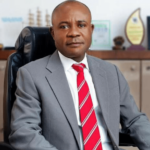
Science capacity building is essential for the long-term development of society. However many people do not seem to see its relevance to their lives and the society. In many institutions, science equipment are scarce, teaching approaches based on approaches long known to be ineffective and scientists challenged with models for research unsuitable for a resource limited setting. This was partly why a network of passionate scientists – TReND in Africa, was founded in 2012 by a European scientist, Dr Lucia Prieto, to promote science in Africa (www.trendinafrica.org). As the outreach coordinator for TReND, last month I was at Yobe State to organise a science festival, a follow up to an early version at Gombe State. In the last four years, I have organised similar activities in other parts of Nigeria and Uganda and have participated in related activities in the UK. This article was inspired by this experience.
To inspire the future generation of scientists, young students need to be shown that science is exciting and connected with science mentors for career guidance. To sustain the interests instilled in them, the passion for science in teachers needs to be reinvigorated. One way to do this would be by linking scientists to science teachers, who can periodically train them on experiments adoptable to their classroom. The public has a high level of misconceptions about science and science funding is inadequate. To help in addressing these, you need scientists and clinicians to regularly dispel misconceptions about science/diseases and showcase their research and its relevance to the society so that the public and policymakers would see the potentials of local research and the need for better funding. The recent science festival was designed to achieve all these, thanks to a collaboration with Yobe State University and the Yobe State Government. Science teachers and students from 25 schools across the various local governments of the state were trained and participated in competitions respectively. Scientists from different parts of Nigeria were invited to showcase their research to the public. A full story of the festival has been published earlier by Premium Times and Yerwa Express.
The winning entry for science innovation competition in the festival was a brilliant project by GSS Gadaka, more like a mini Garden by the Bay of Singapore. Infact, the judges for the competition, including Professor Isa Hussaini, an international expert in Cancer research, Professor Anthony Ebeigbe, former President of the Physiological Society of Nigerian and Professor T. Jacks, the current President of the Anatomical Society of Nigeria, were amazed by all the entries, especially because they were made using locally available resource. In the history of science, these are the kinds of qualities that make scientists successful – being able to improvise to innovate. Earlier in 2017, I was in Lagos where I organised a research-based hands-on workshop for secondary school students on Alzheimer’s disease. Their performance and what I saw during the festivals in Gombe and Yobe, is hugely reassuring of our potentials in science in Nigeria. We have students with innovative minds, capable of becoming the future generation of world-leading scientists; we need to support them.
Science fairs need to be more frequent, to enable students to interact and learn from scientists. In the UK, young students as young as 6 years attend science festivals to interact with scientists, making them develop a deep passion for science at a young age. Thus, it was no surprise that last year, a 15-year old British boy, Krtin Nithiyanandam, won Scientific American Innovator Award for developing a test that could diagnose Alzheimer’s disease. Our students could achieve this, but when we improve the state of science laboratories in schools and update science curricula to incorporate more practical based projects that challenge students to be innovative. Of course, salary size is essential for motivation and quality of teaching, but the absence of equipment equally dampens the motivation of science teachers and thus the teaching. Microscopes and many types of equipment needed in schools are not expensive. Thanks to the continuous support of the Department of Zoology at the University of Cambridge and School of Lifesciences, University of Sussex, we have freely trained several teachers and donated microscopes to their schools. However, these days one can own a microscope with less than 1000 Naira (see https://www.foldscope.com/). Schools can get their equipment printed using 3D printers, that itself can be procured for just $300 or less.
Our recent science festivals were in collaboration with Gombe and Yobe State Universities, and have previously collaborated with the University of Maiduguri to organise a practical workshop for teachers in Maiduguri. What would be ideal however is for these universities and others across the country to make these activities a tradition, not just for the sake of students or teachers but the public. Cultural and religious misconceptions are among the key factors that slow science progress in Africa. There are many misconceptions about diseases in our society. Many often think by being religious, one has to be anti-science. Unaware that several inventions and discoveries were made by scientists with religious affiliations. The famous Big Bang Theory was proposed by the Belgian Priest – Georges Lemaître. In the book of hadith, Prophet Muhammad (PBUH) mentioned that "There is no disease that Allah has created, except that He also has created its treatment." This itself is a motivation for research into the treatment of diseases. University is the citadel of knowledge, and I am sure making science fair a tradition in universities would transform our societies and its attitudes towards science.
Mahmoud is a Postdoctoral Fellow in the Serpell Laboratory, University of Sussex, UK, a Fellow of the Royal Society of Arts and a recipient of the Royal Society of Biology Science Communication award. He can be reached via @mahmoudbukar



